In this article, we will delve into the world of food supplements that have gained recognition as a complementary approach to support joint health and alleviate symptoms associated with osteoarthritis.
We will explore the key nutrients and ingredients found in these supplements, their potential benefits, and how they can contribute to managing the challenges posed by osteoarthritis.
Food Supplements for Osteoarthritis
Food supplements play an important role in managing osteoarthritis by supporting joint health, reducing pain and inflammation, improving mobility, and promoting cartilage repair. Below are some of the food supplements that may be beneficial for osteoarthritis.
1. Glucosamine
Glucosamine is a natural compound found in the body that plays a vital role in maintaining the health of joints. It is a building block for cartilage and stimulates the production of proteoglycans, which are important for the structure and function of cartilage.
Supplementing with glucosamine may help support joint health, improve joint mobility, and reduce joint pain.
2. Chondroitin
Chondroitin is a major component of cartilage and is known for its ability to provide strength, flexibility, and resistance to compression. It attracts water molecules, helping to maintain joint lubrication and cushioning.
Chondroitin also inhibits enzymes that can break down cartilage and reduces inflammation in the joints.
3. MSM (Methylsulfonylmethane)
MSM is an organic form of sulfur that plays a crucial role in the formation and maintenance of connective tissues, including cartilage, tendons, and ligaments. It possesses potent anti-inflammatory properties, reducing joint inflammation and pain.
Methylsulfonylmethane also aids in the production of collagen, a structural protein important for joint health and repair.
Today, the market offers a variety of nutritional supplements that combine all three components: Glucosamine, Chondroitin and Methylsulfonylmethane. Below are some examples of such products.
4. Curcumin
Curcumin is the active compound found in turmeric, known for its powerful anti-inflammatory and antioxidant properties. It can help reduce joint inflammation, ease joint stiffness, and improve joint flexibility.
Curcumin also supports overall joint health by inhibiting the production of enzymes that contribute to joint damage.
5. Omega-3 Fatty Acids
Omega-3 fatty acids, particularly EPA (eicosapentaenoic acid) and DHA (docosahexaenoic acid), are essential fats that play a crucial role in maintaining joint health. They possess potent anti-inflammatory properties, reducing joint inflammation and pain.
Omega-3 fatty acids also support joint lubrication, enhance joint flexibility, and contribute to the overall structural integrity of cartilage.
6. Magnesium
Magnesium is an essential mineral that plays a crucial role in joint and muscle health. It has anti-inflammatory properties and helps relax muscles, which can contribute to reducing joint pain and improving joint flexibility.
Additionally, magnesium is involved in various enzymatic reactions that support bone health and promote the production of collagen, a key component of cartilage.
7. Collagen
Collagen is the main structural protein in cartilage tissue. It provides strength, elasticity, and support to the joints. With age and osteoarthritis, collagen production may decrease, leading to cartilage damage and joint deterioration.
Collagen supplements can help replenish and support the structural integrity of cartilage, potentially reducing joint pain, improving joint function, and promoting joint repair and regeneration.
8. Boswellia
Boswellia, also known as Indian frankincense, is a herbal supplement with anti-inflammatory properties. It helps reduce joint inflammation and may alleviate joint pain and stiffness.
Boswellia works by inhibiting the production of pro-inflammatory molecules, providing relief for individuals with osteoarthritis.
9. Ginger
Ginger is a popular spice with anti-inflammatory and analgesic properties. It can help reduce joint pain, inflammation, and stiffness associated with osteoarthritis.
Ginger works by inhibiting the production of inflammatory mediators and promoting the body's natural anti-inflammatory response.
10 Hyaluronic acid
Hyaluronic acid is a naturally occurring substance in the body that has gained attention for its potential benefits in supporting joint health. It is believed to have the ability to improve joint lubrication, reduce inflammation, and enhance overall joint function, potentially providing relief to individuals with osteoarthritis.
Incorporating hyaluronic acid as a dietary supplement may offer a potential avenue for enhancing joint health and promoting better mobility for those managing osteoarthritis.
11. Bonus: Green Tea Extract
Green tea extract is rich in polyphenols, which possess antioxidant and anti-inflammatory properties. It can help reduce joint inflammation, protect cartilage from oxidative damage, and alleviate osteoarthritis symptoms. Green tea extract may also support joint health by modulating inflammatory pathways in the body.
Conclusion Food Supplements for Osteoarthritis Relief
Effective management of osteoarthritis requires a comprehensive approach that includes lifestyle modifications, physical activity, and nutritional support.
Food supplements can play a valuable role in supporting joint health and reducing osteoarthritis symptoms. Glucosamine, chondroitin, MSM, curcumin, omega-3 fatty acids, and other supplements have shown potential benefits in relieving joint pain, reducing inflammation, and supporting cartilage health.
It's important to note that while these supplements can be helpful, they should be used as part of a well-rounded approach to managing osteoarthritis.
Individual responses may vary, and it's recommended to consult with a healthcare professional or a registered nutritionist to determine the most appropriate supplements, dosages, and combinations based on your specific needs and health condition.
Incorporating food supplements into your osteoarthritis management plan, along with a balanced diet, regular exercise, and appropriate medical care, can help optimize joint health and improve your overall quality of life. Remember to prioritize a holistic approach and make informed choices based on reliable information and expert guidance.

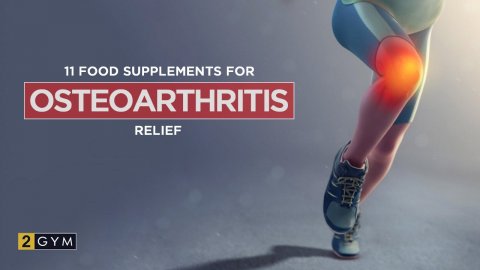









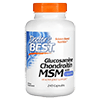







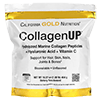
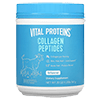
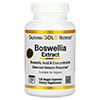


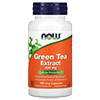
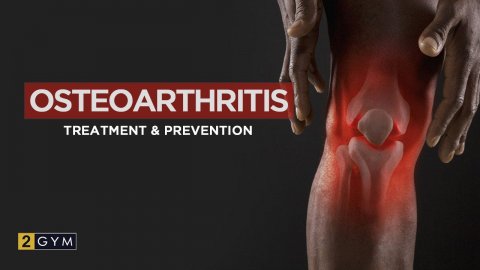

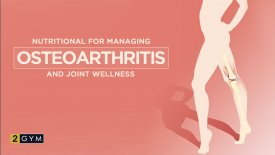
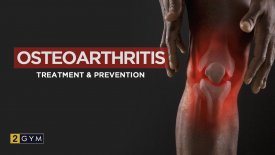







Log in with ( Sign Up ? )
or post as a guest
Be the first to comment.